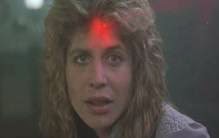It's not the end of the world.
Even though it will definitely feel like it.
It was a pretty generic rejection, which means I may want to go through it again. This could be as simple as another quick run-through for any little editing nails that need hammering down, or it might be a good time to send it out to beta readers again and take a good, hard, look at their feedback.
I chose not to do a simultaneous submission, which would mean sending it out to multiple publishers at once for consideration. So, in this case, a rejection means starting the whole wait over from scratch after submitting it somewhere else. Even if I do several submissions this time, most have the same general waiting period, between anywhere from three to six months. Given wait times like that, just to see if your work is accepted or not, it's not surprising people have been turning to self-publishing. Under the old methods, working with presses and publishers, it can easily take years just to find a publisher, let alone get your work into print. (Yeah, a little upset, I must admit, and slightly prone to rambling. Enough of that for now though. I have pizza to finish.)
1. Remind yourself that every author who's ever lived has faced rejection at one point or another. Stephen King has stated that he had over 300 rejection notices before he finally sold his first piece. J.A. Konrath has reported on his blog that he had actually written seven other novels before his agent managed to find a publisher willing to take a chance on his latest one. The first Harry Potter novel, written by J.K. Rowling, was rejected by twelve different publishers before it was picked up, and even then, they told her it probably wouldn't make money. As those authors show, a rejection or two means very little in the grand scheme of things.
2. A rejection, like a bad review, is just one person's opinion. Yes, that one person has the power to say "Give that man a thousand dollars for his story, NOW!", but that is still just one person. It might be that they just didn't feel any attachment to your characters, or doesn't like your writing style on general principle. It could be that yours was the 13th out of 13 similar zombie apocalypse books they'd had to look at that day. It could even be something as simple and unfair as that your book got shuffled in front of them before they had their morning coffee. The point that remains though, is that this is still just one person's opinion. It doesn't mean someone else won't absolutely love it, or even that most other people will absolutely love it. It just means that one person didn't care for it.
The only thing a rejection means is that your piece MIGHT need some more work. It doesn't mean you should quit writing or that you should throw that story away.
As bad as a rejection letter or email might make you feel, the only one who can make you a success or a failure is you. It's a question of either taking the rejection personally and to heart, or tacking it up on the wall as someone you're going to prove wrong.
So how are you going to take that rejection?
~ Shaun














